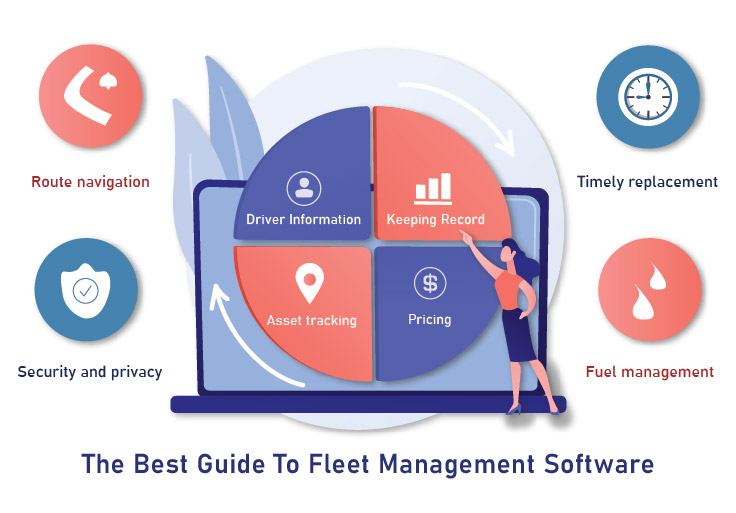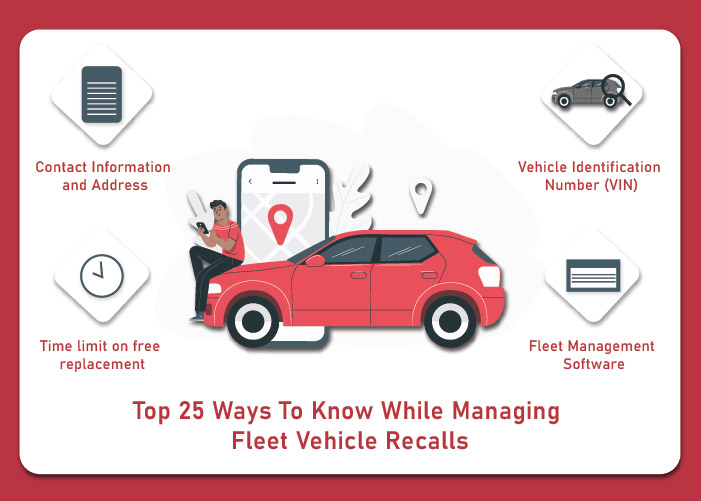Fleet managers have to juggle several tasks. To help you implement efficiencies that can streamline your fleet operations, we have compiled seven best practices for highly effective fleet managers.
1. Only record information when necessary
Recording the relevant information is beneficial in measuring and monitoring the overall fleet performance. But it’s not required to record everything, as it may quickly make you overwhelmed.
Information plays a significant role in analyzing past performance and helps set goals and objectives for the future. As a result, you lead to enhanced efficiency and substantial accountability.
But if you collect much information, you may need higher administration resources for its management. So, gather the information that’s essential to make informed decisions in the key areas of fleet management.
You can easily forget the necessary information, but collecting ample unnecessary information is yet easier. It can waste your precious time and resources plus generates superfluous administration.
2. Act without reacting for the safety
When it comes to safety, highly effective fleet managers should act without any reaction. Safety is always at the forefront of fleet operations.
Operators are exposed to many dangers, and mishaps can be devastating. However, all incidents aren’t preventable, ensuring your drivers, while performing inspections, confirm vehicle safety before it departs.
3. Make Fleet maintenance easy and accessible
Ignore the spreadsheets, whiteboards, and papers that you use for fleet management. Keep up with preventive maintenance by making inspections, scheduling, and reporting as seamless as possible.
You and your drivers can also use mobile-based applications to conduct fleet checks and receive real-time reminders regarding preventive maintenance.
4. Measure everything important
The secret in making smart decisions lies in your fleet data. Metrics such as cost per mile, ownership cost, and various other operating costs can say so much about your fleet processes.
You can use fleet management software to calculate data automatically, so all you have to do is analyze trends and take informed actions
5. Go Digital
Your consignment orders, invoices, documents, pictures, product menu, and more should be stored digitally. Automation of fleet operations will help you reduce paperwork and perform fleet activities in no time by storing everything in a centralized platform.
Not only it saves your valuable time, but it’s cost-effective too. You can access your documents securely through your computer or mobile device anytime, anywhere.
6. Set expectations and goals for your team
Setting standards for your team helps maintain visibility and responsibility. Motivate your drivers to carry out thorough inspections. Get the vehicles serviced when necessary, thoroughly document any mishaps or issues with the vehicle.
Team collaboration to assist one another to check the fleet will provide you with the information needed to maximize the returns on investments you made on your assets.
7. Track Utilization
Replacing vehicles and equipment can be extremely expensive. Tracking mobile assets used daily gives you an insight into your optimum fleet size. Knowing the age, mileage, and usage is essential when you plan to replace an asset.
You need to be familiar with the different makes and models fitting your criteria ahead of time and consider bulk buying for added savings.
8. Stay informed about the industry developments
With the constant evolution in the fleet industry, it could be challenging to keep track. However, with the implementation of new strategies, you need to stay updated to leverage technology for automating your fleet operations.
The latest technology and trends are coming in the market, so keep a step ahead of your competitors. You can do it by educating yourself regularly.
9. Join a fleet association
Actively involve yourself in industry organizations. Also, you can attend association and industry events focused on fleet operators. It can provide you with ample information, such as industry challenges.
These associations are also beneficial in providing networking opportunities where you can share your ideas and gain support in concerning areas.
To be cautious, avoid those groups which deliberately push their business interests and partnerships. You should only focus on developing a thorough understanding of the industry and stay updated on ideas, news, and advancements.
10. Use a GPS-based systems
Real-time alerts are truly valuable by providing timely warnings. Critical alerts prompt drivers to avoid unsafe driving or help to avert mishaps in many ways.
Moreover, a GPS-based system can help you avoid any unwanted accidents and save your cost of repair plus driver’s life.
If you use a GPS tracker smart Driver Distraction Warning and Fatigue Detection System, it will monitor your driver’s posture and helps detect their hand gestures and yawns.
Also, it detects inconsistent speed variations and driving in the wrong lane. If any of these occurs, this system issues a warning alert to the driver and initiates other suitable actions.
Conclusion,
If you are planning to start a fleet management business, the above points could be helpful to you.
Additionally, you can invest in enhanced technology like a fleet management system that will save you time as well as money.
This investment will soon reduce admin and maintenance time and cost. The data records can provide you with reports essential to run fleets efficiently.
Being a successful fleet manager can be a daunting task, but developing an exceptional working industry knowledge, setting measurable goals, and using specific tools can help you identify areas of improvement.
Click here to read the best guide to fleet management software




